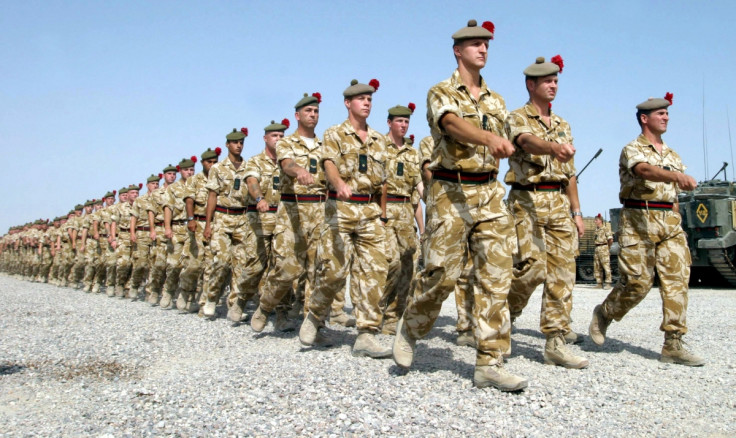'Reasonable to believe' UK armed forces committed war crimes in Iraq, says Hague prosecutor
The preliminary report by the International Criminal Court said the claims were not related to attacks on civilians.

The International Criminal Court announced on Monday (4 December) that it would move forward with an investigation into war crimes committed by British troops in Iraq. The ICC's chief prosecutor Fatou Bensouda said that there is a "reasonable basis" to believe that members of Her Majesty's Armed Forces were involved in the abuse of prisoners during the period between 2003 and 2008.
The Hague released a 74-page report to the annual assembly of states — parties that participate in the jurisdiction of the court — alongside the announcement regarding the investigation.
"The [prosecutor's] office has reached the conclusion that there is a reasonable basis to believe that members of the UK armed forces committed war crimes within the jurisdiction of the court against persons in their custody," Bensouda said in New York.
She did, however, point out that the claims of war crimes were specific to the treatment of those in custody and not relating to the battlefield. "In the absence of information indicating intent to kill or target civilians or civilian objects, or cause clearly excessive civilian injuries, there is no reasonable basis to believe that war crimes within the jurisdiction of the court were committed by British armed forces in the course of their military operations not related to the context of arrests and detentions," the report states.
The ICC had conducted a similar investigation in 2006 and concluded that there was evidence that British troops were involved in "war crimes involving systematic detainee abuse in Iraq from 2003 until 2008". At the time, the court chose not to take action considering there were less than 20 allegations made against the soldiers.
In 2014, Bensouda decided to reopen the investigation following claims by rights groups and lawyers that around 1,071 Iraqi detainees were tortured and ill-treated during the period in question. They also alleged that at least 52 unlawful killings of detainees took place at the time.
One of the legal groups who provided the prosecutor with new information — the Birmingham law firm, Public Interest Lawyers (PIL) — was subsequently shut down after it was found guilty on misconduct charges resulting from a public inquiry. The group's lead counsellor Phil Shiner faced prosecution by the Solicitors Regulation Authority over allegations linked to his cases involving Iraqi claimants. He was disbarred from being a solicitor.
Bensouda said the ICC "exercised an abundance of care" in probing the claims, but pointed out that individual statements received from PIL "could be considered credible enough if substantiated with supporting material".
Earlier this year, hundreds of claims of misconduct by British troops in Iraq and Afghanistan were dismissed and British defence officials said the UK had the capacity to conduct the investigations internally.
"We have a legal responsibility to investigate credible allegations of wrongdoing by UK forces, and that is what we are already doing as part of service police legacy investigations," a UK government spokesperson said. "We are confident that our existing efforts to investigate allegations preclude the need for any investigation by the ICC."






